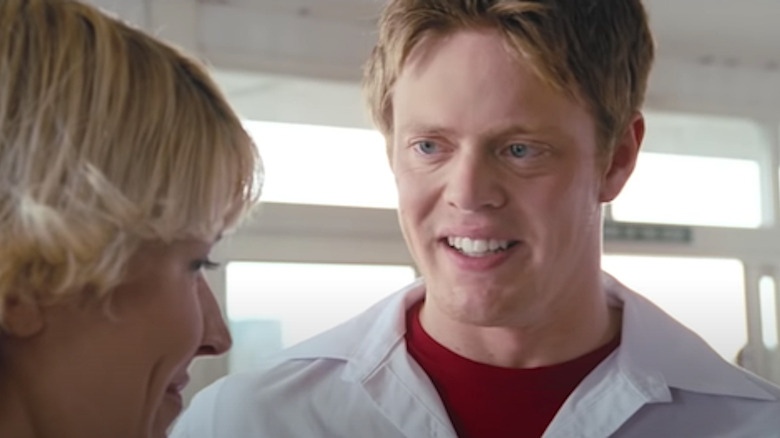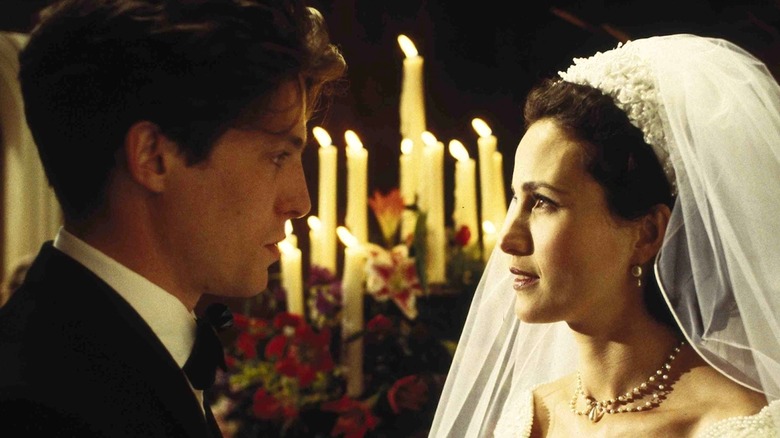A Four Weddings And A Funeral Scene Was Actually Repurposed For Love Actually
Richard Curtis is a man with many ideas. If you've ever watched any of the films he's scripted, like "Four Weddings and a Funeral" or "Love Actually," you know exactly what we're talking about. His movies tend to have multiple storylines which often intersect, even if onlybriefly. Given that the big limitation of cinema is that movies have to have a finite runtime (yes, even "The NeverEnding Story," which boasts a title that's just blatant false advertisement), it's no surprise that sometimes he's got too many ideas to fit into a single movie. That was certainly the case with "Four Weddings and a Funeral," and that makes sense. After all, you're cramming four different weddings and a funeral into two hours. Something's gotta give.
Fortunately, romantic comedies are Curtis' wheelhouse. And in the world of romantic comedies, more often than not there's going to be a wedding. Such was the case with "Love Actually," the directorial debut for Curtis. Since he also wrote "Love Actually," he was able to reuse a scene that had been cut from "Four Weddings."
The scene in question revolves around the character of Colin, played by Kris Marshall, trying (and failing) to hit on a pretty blonde woman named Nancy at a wedding reception. His method of flirting? Insulting the food... without realizing that Nancy, played by Julia Davis, is the caterer. It's an awkward exchange, to say the least, and memorable for a couple reasons: it's got a high level of cringe, and it's also the moment that incites Colin's subplot about heading to fabulous Wisconsin in hopes of charming American women through the sheer adorability of his British accent.
From a bumbling romantic to an abrasive cad
Given Hugh Grant was the star of "Four Weddings and a Funeral," it probably won't surprise you to learn that Colin's scene in "Love Actually" was originally scripted for Grant's character, Charles. After all, stumbling over his own words and being delightfully flummoxed is kind of Grant's claim to fame. So it's not a stretch to imagine him bungling an attempted come-on by saying all of the wrong things. We're going to assume that, coming out of Grant's mouth, his failure would have been more charming and less crass, but that doesn't make it any less enjoyable watching Colin absolutely face-plant once he realizes he's been inadvertently viciously insulting the target of his romantic quest.
In the end, both Charles in "Four Weddings and a Funeral" and Colin in "Love Actually" find happiness by the time the end credits roll. After all, these are Richard Curtis romantic comedies. It's not fun to walk out of a romcom feeling depressed. The degree to which their characters deserved happiness is up for debate, of course, especially given Colin's subplot in "Love Actually" is not always well-received. Some of the complaints involve the seeming shots at American women being dolts who fall all over themselves when they hear an accent, and others involve not liking to see a cad like Colin get rewarded for his questionable behavior.
Still, even those who find themselves put off by the end of Colin's arc will surely appreciate the scene borrowed from "Four Weddings." Sometimes, seeing a horny jerk embarrass himself is all the satisfaction you need. Just, y'know... ignore the fact that he ultimately wins in the end.

